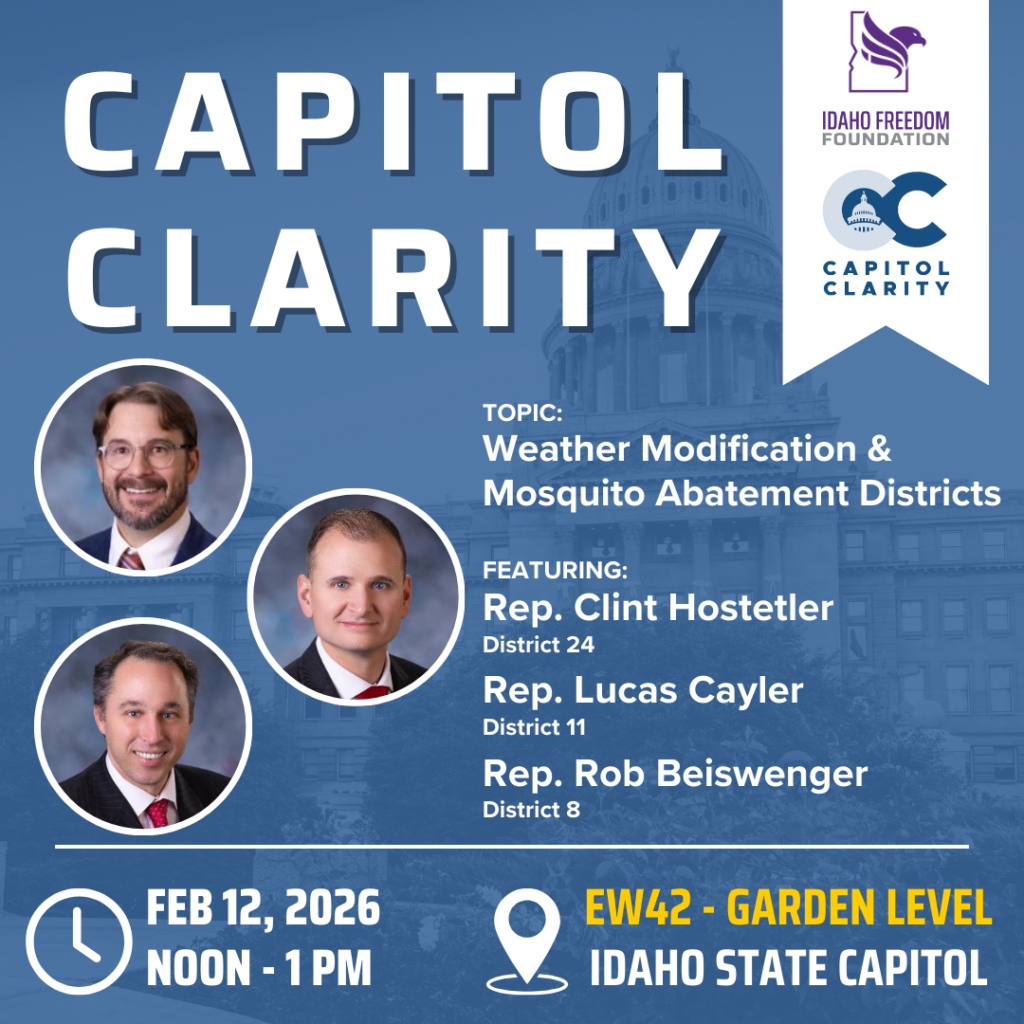
Excerpt: "Lawmakers need to remember that when they vote to set a state budget and establish the tax policy that goes with that budget, what they’re really voting on is how much money to take out of the economy."
In the coming weeks, you’re going to be hearing a lot about the state’s budget – the fact that there’s a looming budget surplus and a host of government agencies begging for that money. At the same time, that surplus has ignited some desire to cut taxes.
Lawmakers need to remember that when they vote to set a state budget and establish the tax policy that goes with that budget, what they’re really voting on is how much money to take out of the economy. They’re voting on how much money businesses, their employees, Idaho residents, charitable organizations and so on should not have because government supposedly needs it more.
Some money is invariably necessary to provide services that fall under the heading of the “proper role of government.” Prisons, military and a limited police force are among these. Under our state constitution, this also includes a public education system.
But it is important to remember that every penny that’s taken out of the private sector to run government programs and services and entitlements is a penny that isn’t available to the private sector for salaries and raises, to hire new employees or to make capital investments.
To state lawmakers, the concern in the months ahead is how to spend roughly $2.5 billion. But their debate should really be about how to keep as much money as possible in the economy.
To the waitress working tables at your favorite restaurant, the money government takes out of private sector productivity impacts every aspect of her finances. The more money that’s taken out of the economy, the less money there is for companies to meet a payroll. The less money available for payrolls, the less likely it is our waitress will see a raise. Without a raise, our waitress friend will have less money to spend on food, clothing and other necessities. She’ll have less money to pay her rent. She’ll have less money to buy Christmas presents for her kids. Of course, with less money in the economy, it’s quite possible her boss will choose to have a restaurant with one less waitress.
Because of her struggle, some folks in the government and in elected office will want to help. They’ll add government employees armed with knowledge and good intentions to try help her with her issues. They’ll add entitlements – a program to help her pay for food, a program to help her pay for medicine, a program to help her get insurance, a program to help with rent. If her job ends because the restaurant didn’t have enough money to retain employees, the government will try to help with her with unemployment benefits, job retraining programs and career counselors.
But we forget this waitress would have been better off if lawmakers had only figured out how to keep money in private sector. It’s not glamorous, but it is the most definitive way to help ordinary people who simply want their own shot at the American Dream.
Idaho has a burdensome personal property tax that needs to go away. It has a confiscatory corporate income tax that makes the state less attractive to business prospects. Idaho’s progressive personal income tax (also paid by many Idaho businesses) penalizes success. Opportunities to lower Idaho’s tax burden abound, if only our legislators are willing to put our struggling waitress and her economic needs ahead of the needs of government and its agencies.



